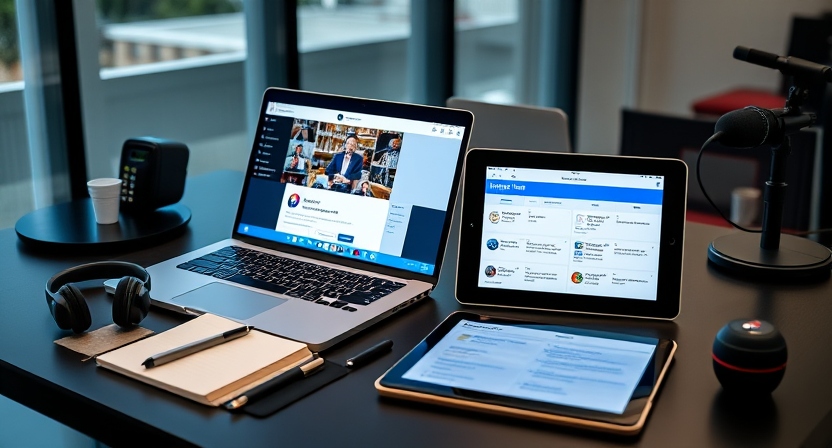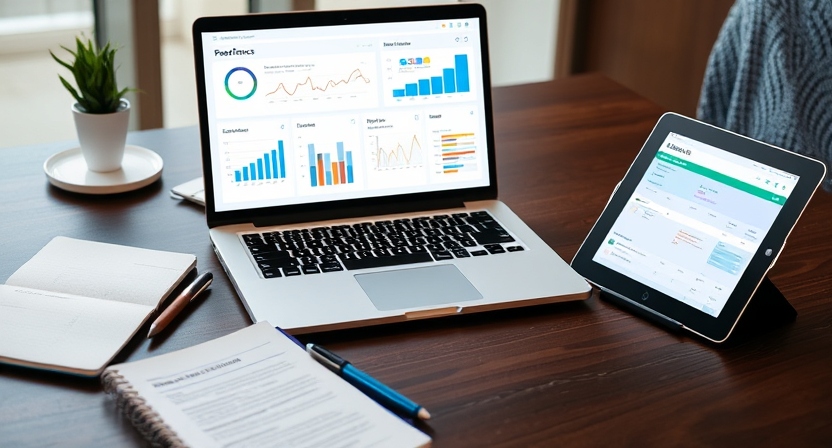Essential Tech Tips for Event Planning, whether it’s a corporate conference, a wedding, or a community festival, can feel like an overwhelming task. Between coordinating vendors, managing attendee lists, promoting your event, and ensuring everything runs smoothly on the day, there’s a lot to juggle. Fortunately, technology can be a game-changer. With the right tools, you can simplify and streamline the planning process, leaving you more time to focus on the big picture.
Table of Contents
10 Tech Tips for Event Planning: Simplify and Streamline Your Process
Planning an event can be overwhelming, but with the right tech tools, you can simplify the process. From managing registrations and ticketing to promoting your event and staying organized, these 10 tech tips will help you save time and reduce stress, ensuring a smoother experience for both you and your attendees.
Start with Comprehensive Event Management Software
Invest in event management software to streamline your event planning process. These tools centralize all your tasks, providing features such as registration, ticketing, and attendee management in one place. Many platforms also offer built-in analytics, allowing you to track real-time progress and evaluate the success of your event. This makes them essential not only for efficient event execution but also for gathering insights and feedback that can help improve future events.
Use Collaborative Tools for Team Coordination
Event planning typically involves multiple team members, so staying organized and maintaining clear communication is essential. Tools like Trello, Asana, or Slack are invaluable for team coordination. They allow you to assign tasks, set deadlines, and track progress in real-time.
Instead of sifting through endless email chains, your team can collaborate seamlessly within these platforms, ensuring that nothing falls through the cracks. These tools also help streamline feedback, provide updates, and keep everyone aligned throughout the event planning process.
Leverage Social Media and Digital Marketing
Promoting your event is essential to ensure you reach the right audience. Social media platforms such as Facebook, Instagram, Twitter, and LinkedIn are great tools for building awareness and engaging with potential attendees. Scheduling tools like Buffer or Hootsuite allow you to plan posts in advance and track engagement, while also enabling cross-platform posting to maximize reach.
To generate excitement, consider using interactive content such as polls, countdowns, or live videos. Don’t forget to include event-specific hashtags to make it easy for attendees to share their experiences and build a community around your event.

Streamline Registration and Ticketing
Online registration and ticketing platforms are a must-have for any event. Services like Eventbrite, Ticket Tailor, and Brown Paper Tickets simplify the process of sign-ups, payment collection, and attendee management.
These platforms also enable you to gather critical data, such as attendee preferences, meal selections, or workshop choices, which can help tailor the event experience. With options like early-bird discounts, promotional codes, and group tickets, online ticketing solutions provide flexibility and encourage participation.
Integrate Virtual and Hybrid Options

In today’s world, virtual and hybrid events are increasingly popular. Platforms like Zoom, Microsoft Teams, Hopin, and Remo allow you to reach a broader audience by offering remote attendance options. Hybrid models combine both in-person and virtual components, offering flexibility and accessibility.
Be sure to test your tech setup well in advance to avoid any glitches during the live event. High-quality streaming, seamless interactivity, and virtual networking options should be prioritized to ensure a professional and engaging experience for remote attendees.
Optimize Scheduling with Automated Tools
Scheduling meetings, sessions, or appointments can often be the most tedious aspect of event planning. Doodle and Calendly are excellent tools for automating this process. They allow attendees or team members to select available time slots, eliminating the need for back-and-forth emails or confusion.
These tools sync with your calendar, so everyone is on the same page when it comes to meeting times. This is especially useful for coordinating with speakers, vendors, or even attendees who need to book one-on-one sessions during the event.
Enhance Attendee Engagement with Mobile Apps
Custom event apps are a fantastic way to enhance the attendee experience. Apps like Whova, Attendify, and EventMobi provide event-specific schedules, venue maps, speaker bios, and other essential information at attendees’ fingertips.
Many apps also offer features like live polling, Q&A sessions, networking tools, and one-on-one matchmaking based on attendee interests. These apps help foster engagement, encourage networking, and provide real-time updates about event changes or important announcements.
Utilize Data Analytics for Improvement
Post-event analysis is an essential part of improving future events. Use tools like Google Analytics, Tableau, or the built-in analytics dashboards of your event platforms to gather insights about attendee behavior, ticket sales, session popularity, and more.
This data allows you to evaluate what worked well and where improvements can be made. For example, tracking attendee engagement during specific sessions or workshops can help identify the most popular topics and formats. Additionally, analyzing ticket sales trends and demographic data can guide your marketing efforts for future events.

Simplify Venue and Vendor Coordination
Finding the right venue and managing vendor relationships can be time-consuming and complex. Websites like Peerspace, GigSalad, and The Venue Report offer user-friendly platforms for browsing venues, vendors, and services.
These sites often include filtering options for location, price range, and amenities, making it easier to find the perfect match for your event needs. Additionally, vendor reviews and ratings from other users can provide valuable insights to help you make informed decisions. Once you’ve selected your venue and vendors, use event management software to track contracts, payments, and deadlines.
Don’t Forget Cybersecurity
With the increasing reliance on technology comes the need for strong cybersecurity measures. If your event involves handling attendee data, online payments, or any other sensitive information, it’s crucial to ensure that the platforms you’re using are secure. Look for platforms with encryption, secure payment gateways, and compliance with data protection regulations such as GDPR.
Educate your team about best practices for handling personal data, and implement measures such as two-factor authentication to protect against cyber threats. Ensuring data security not only protects your attendees but also builds trust in your event.
Wrapping Up
By integrating these tech tools into your event planning process, you can save time, reduce stress, and create a more engaging experience for your attendees. Whether you’re planning a small conference or a large-scale festival, technology has the power to enhance every aspect of your event, from the initial stages of planning to post-event analysis. By using these tools wisely, you can ensure that your next event is a huge success.

Pradeep Sharma is a author the mind behind Techjustify, where I craft insightful blogs on technology, digital tools, gaming, AI, and beyond. With years of experience in digital marketing and a passion for tech innovation, I aim to simplify complex topics for readers worldwide.
My mission is to empower individuals with practical knowledge and up-to-date insights, helping them make informed decisions in the ever-evolving digital landscape.


